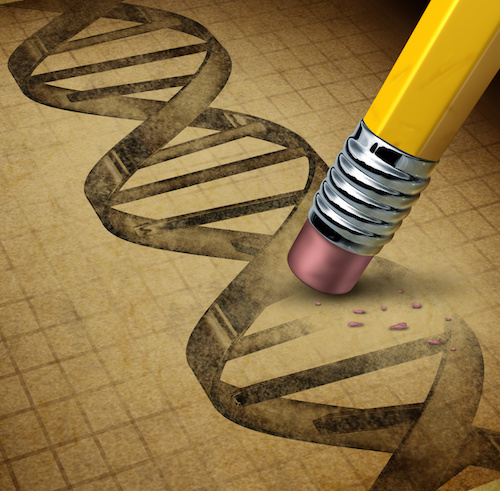 Culture & Ethics
Culture & Ethics
 Medicine
Medicine
U.S. Prepares to Push Human Genetic Engineering

There is a predictable kabuki dance that “the scientists” perform as they push forward with Brave New World research.
First, as a new controversial technology becomes foreseeable, they wring their hands about the “ethics” of what they intend to do.
Second, the scientists hold a big meeting to create strict guidelines and ethical parameters.
Third, they craft parameters and issue press releases assuring a wary world that (cloned babies, genetic engineering, name your technology) will not be allowed. In reality, that’s only because it can’t yet be done.
Fourth, the supposed ethical parameters allow — even encourage — the kind of basic research that is necessary before (name your technology) can be done.
Fifth, the world is told that everything will be constrained with due regard for ethics, as the sector steams full speed ahead.
All that is actually done in these agreements is to prevent what can’t be done, allow what can. Then when the time comes to take the next step, we will be told that the moral views of the world have changed, now allowing the scientists to proceed to go precisely where we were told we would not go — but where they intended all along.
Latest example: There is a potent new form of genetic engineering that could change the germ line down the generations. There is a big meeting to be held soon at the National Academy of Sciences. But an article in MIT Technology Review gives up the game that is afoot:
Next week, in Washington, D.C., the world’s experts on a powerful new genetic-engineering technology called CRISPR will convene at the National Academy of Sciences for a historic meeting at which they’ll consider calling for a global moratorium on anyone trying to use the technique to make genetically modified babies.
The worry is that changing the DNA of the next generation is unsafe and a slippery slope toward eugenics. Yet many of the scientists attending the Washington meeting won’t be there to ban the technology, but to trade tips about how, exactly, they might be able to do it right.
Exactly. It’s all a ruse. Here’s how engineered human life may soon be created as an experiment:
Any gene-edited baby would likely start life in an IVF clinic where doctors could oversee its creation.
The problem is that rewriting a gene with CRISPR is still hit or miss — the edits only work about 20 percent of the time, and occasionally it introduces unwanted mistakes. That’s no obstacle for engineering flies or worms. Just try again. But it’s a huge problem for anyone who wants to repair an embryo in an IVF clinic and then make a baby.
It wouldn’t be that simple. Scientists would first manufacture multiple genetically engineered embryos to be destroyed in experimentation. The same could be done to fetuses if an artificial womb is invented — currently on the drawing board.
Eventually, when deemed “safe,” genetically engineered babies could be born. But even that wouldn’t be the end of the experiment. They would have to be followed for the rest of their lives medically, because they would have been created as an experiment with unknown potential health consequences.
So are “the scientists” reluctant at all about any of this? Not really:
IVF clinics in the future might take a skin punch from a customer and return either gene-edited eggs or sperm a few weeks later. “There is no reason to think it can’t be done,” says George Daley, a noted stem cell researcher at Harvard University’s medical school. From what he’s seen, he says, the prospect of installing custom DNA edits into lab-grown reproductive cells is “very real.”
Not only “very real,” it’s what they want to do. They don’t really care what society thinks about it. But they don’t want us sticking our noses in and spoiling the party with regulatory or legal roadblocks. It’s the kabuki dance, you understand.
Image: � freshidea / Dollar Photo Club.
